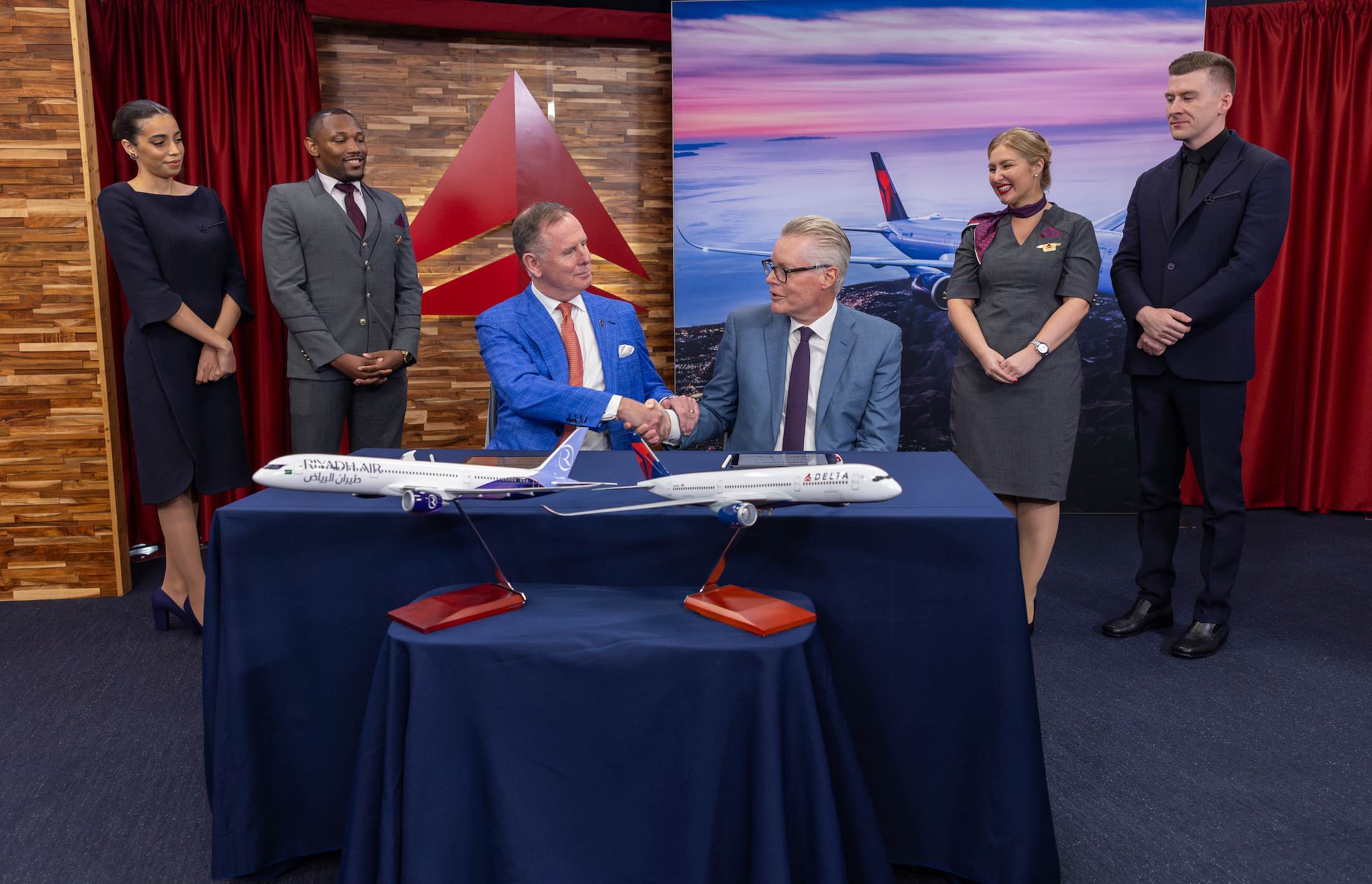Delta Air Lines Signals Middle East Ambitions With Atlanta–Riyadh Flight

Delta Air Lines is expanding to Riyadh, Saudi Arabia with a new route that raises questions about strategy, subsidies, and long-term goals.
Delta Air Lines Confirms Atlanta–Riyadh Flights As Part Of Riyadh Air Partnership
Delta CEO Ed Bastian has confirmed plans to launch nonstop service between Atlanta (ATL) and Riyadh (RUH), the capital of Saudi Arabia. The new route, expected to operate with an Airbus A350, is part of Delta’s growing partnership with Riyadh Air and is tentatively set to begin in 2026. The A350 will feature Delta One Suites, Premium Select, Comfort+, and Main Cabin seating.
As usual, JonNYC called this route well in advance:
The airline says this new long-haul link will connect the U.S. Southeast to one of the fastest-growing markets in the Middle East. Delta describes the route as a “strategic milestone” that supports expanding connectivity and premium travel options across both networks.
Why Riyadh when the amount of demand between the two cities is limited? The choice of Riyadh makes sense when viewed through the lens of Saudi Arabia’s Vision 2030 initiative, which aims to diversify the kingdom’s economy and make Riyadh a global hub for tourism and business. Delta, which has not served the Gulf region in years, sees this as an opportunity to establish a presence before others do and do so with some help from the Saudi government, which is reportedly offering subsidies to encourage new service.
But there’s also the business partnership angle. Delta and Riyadh Air have already signed a strategic agreement to cooperate on codesharing, frequent flyer benefits, and coordinated flight schedules. Once Riyadh Air begins operations, passengers from Atlanta could connect to destinations across the Middle East, South Asia, and Africa. Delta’s expertise in Maintenance, Repair, and Operations (MRO) is also likely to play a role in helping to get Riyadh Air established as a reliable carrier.
My Take
I think this is an interesting move. Sure, it is the subsidies that are immediately driving this route announcement, but the partnership with Riyadh Air also gives Delta an anchor in a region where it has long lacked a strong partner. Saudi Arabia is investing heavily in tourism and infrastructure, and Delta’s presence in Riyadh aligns with that vision.
That said, this is not without risk. Riyadh is still developing as a global transit hub, and Delta will have to prove that there is enough premium and business demand to justify the route. Unlike Dubai, Doha, or Istanbul, Riyadh is not yet an established connecting gateway, which may limit early success. The subsidies will offset that, but unless the subsidies are incredibly generous, Delta must still weigh whether those aircraft could be more valuably deployed to other destinations.
Even so, I like seeing Delta expand internationally with a clear partner strategy, which is a bit different than the way United launches new routes. If Riyadh Air delivers a quality product and a smooth connection experience, this could be the start of something significant…I have not been to the Kingdom in more than a decade and understand that it has changed tremendously. I’d very much like to return and fly Riyadh Air.
CONCLUSION
Delta’s planned service between Atlanta and Riyadh signals a renewed push into the Middle East and a closer relationship with Riyadh Air. When it launches, the Atlanta–Riyadh route will be one of Delta’s longest, covering more than 7,200 miles each way. Delta has been weak in the Middle East and, until now, lacks the partners that United (Emirates) and American (Qatar and Etihad) have. I see great potential in this relationship and see it as a way for Delta to offer service to many secondary cities in India in the years ahead.